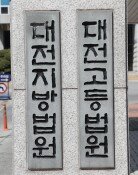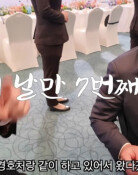Better Screening of Cabinet Nominees
Better Screening of Cabinet Nominees
Posted August. 30, 2010 11:17,
The withdrawal of Prime Minister-designate Kim Tae-ho and two other minister-nominees from consideration for their respective posts over corruption allegations shows the country`s growingly stricter moral standards for high-ranking officials. Lying, a chronic disease in Korean politics, has proven to be the worst act of self-damage in the parliamentary confirmation hearings for key Cabinet positions.
Kim provoked public anger by repeatedly lying about his failure to separate public and private matters. The former South Gyeongsang Province governor had an employee of the province serve as a maid at his official residence and allowed his wife to use a government vehicle for personal use.
President Lee Myung-bak must find cleaner and more able people who can meet public expectations as candidates for prime minister and other Cabinet posts. While ethical standards are important, ability should not be put on the backburner. The president should not pick people who are ethically flawless but who have accomplished nothing.
Selecting people who can satisfy the public 100 percent is tough, but one of the presidents most important tasks is to find those who gain public approval. President Lee should deeply reflect on whether he has fulfilled all of his responsibilities in making his latest nominations, which have gone awry. Just 13 months ago, his pick for prosecutor-general had to step down because of a bribery scandal. Could such mishaps have been avoided if the presidents personnel appointment rights were exercised properly?
The public has the right to know if the Office of the Presidents screening system failed to break the presidents barrier or if the mishap occurred though he allowed his staff to fully conduct the screening. The administration should overhaul its personnel affairs system after investigating whether related staff failed to find candidates flaws while trying to read their bosss mind or because of incompetence.
In particular, the administration must utilize the personnel affairs records made by the previous Roh Moo-hyun administration. The records are said to have been focused on Rohs opponents. The incumbent administration must take responsibility for failing to take over such records due to complacency over its overwhelming election victory. It should also not allow the opposition to use such data against the administration.
Self-centered double standards about ethical issues no longer work. There is no reason for false residential registration for educational purposes to be less reproachable than that for investment purposes. If such arguments are to stand, the government should revise the law banning false reporting of a residential address. Everybody knows that President Lee has changed his residential address 15 times and that Shin Jae-min, the culture minister-designate, made five false residential registrations just for educational purposes.





![“배달 시키면 버렸는데”…피자 가운데 ‘그것’ 200% 활용 꿀팁 [알쓸톡]](https://dimg.donga.com/c/138/175/90/1/wps/NEWS/IMAGE/2026/01/07/133111146.3.png)

